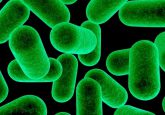Depression and anxiety: what is the scientific difference?

The biochemical differences between depression and anxiety have been elucidated, providing new insights for targeting treatment.
Depression and anxiety often appear in the same sentence: they share several symptoms and risk factors, and are often treated with the same drugs. Over half of patients with Major Depressive Disorder have a history of anxiety. However, they’re classified as different disorders by psychiatrists, although biological evidence for the difference has heretofore been unclear. Now, new research presented at the ECNP Congress (Virtual, 12—15 September 2020) by a team from the Netherlands Study of Anxiety and Depression (NESDA) has provided that evidence.
Using blood samples from 304 people with depression, 548 with anxiety, 531 with both, 807 with remitted disorders and 634 controls, the team used nuclear magnetic resonance to examine 40 blood metabolites and their association with symptoms of each disorder.
They discovered two main findings. “Firstly we found that the depressed group showed evidence of greater inflammation which was not seen in the anxious group,” explained Hilde de Kluiver (Amsterdam UMC, The Netherlands). “We also found that the depressed group had very different amounts and types of lipid in their blood.” This included, for example, higher levels of triglycerides and lower levels of omega-3-fatty acids in those with depression.
 Mental health in academia – a Twitter discussion #TalkMentalHealthSTEM
Mental health in academia – a Twitter discussion #TalkMentalHealthSTEM
In collaboration with Neuro Central, we at BioTechniques are hosting a Twitter discussion surrounding mental health in academia to honor World Mental Health Day 2020.
The metabolites associated with depression were also linked to severity, suggesting it could be possible to use blood biomarkers to stratify depression.
“In contrast, those people who had anxiety disorder had a lipid composition very similar to the healthy control group,” continued de Kluiver.
While previous research has identified biochemical markers for depression, this new work is the first to examine a wide set of markers for anxiety, and thus is the first to demonstrate that the immune system and lipid metabolism are not altered in those with anxiety compared to healthy controls.
It is hoped that these results will lead to better, more targeted treatments. “Our group is now planning to test whether depressed people with altered inflammation might respond to treatment with anti-inflammatory drugs,” noted de Kluiver.
While this work is as-yet un-peer-reviewed, NESDA has been running for over a decade and has resulted in a number of publications. For example, earlier this year de Kluiver published results from NESDA evaluating the link between the symptoms of depression and immunometabolic characteristics between siblings.





